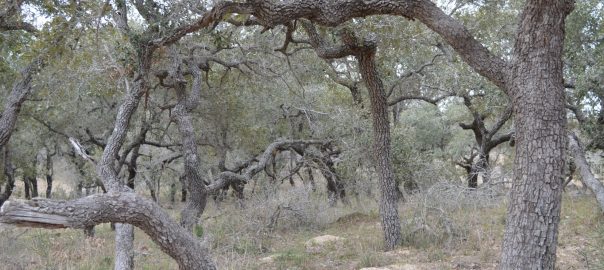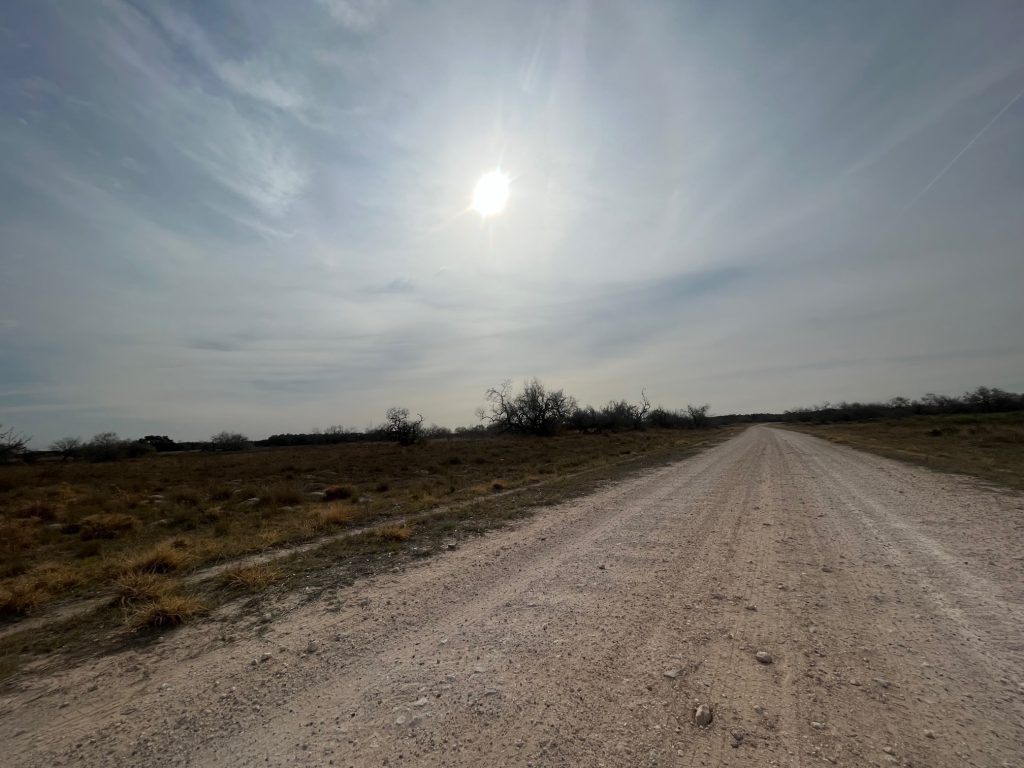It has begun! The long anticipated first day of searching the remote wildlands has finally come. The day started with a cacophony of alarms going off in the hotel room. We frantically scrambled to get all of our gear packed in time to meet Deputy Sheriff Don and Dr. Latham for breakfast where we discussed our plan for the day. I made sure to eat some Activia yogurt (you can ask Izzy, Jordan, and Olivia why). Once we were finished, we squeezed into the minivan where we relished in the last chance to feel cool air conditioning for several hours. The saying is true, you don’t know what you’ve got until it’s gone.
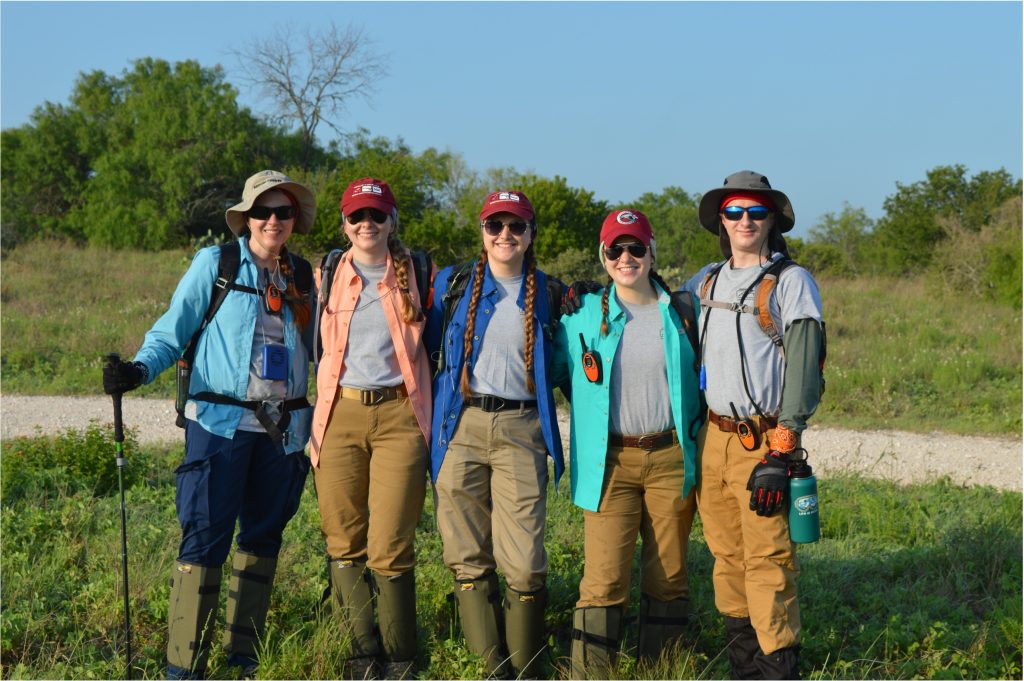
When we got to the search location, we started our line search right away. We used the caliche road as the landmark our anchor would walk next to in order to orient ourselves. Because the road we followed led us north, we spread out our team towards the west and continued north to cover as much ground as possible without getting lost. The landscape was different than I had anticipated. The ground was covered in thick grass and weeds which made our search difficult. At first, we all did a really good job staying together as we traveled through the desert, checking under trees and in the thick brush. We managed to find some faint footprints, old water bottles, a distressed lunchbox and backpack, and a pair of pants. The pants were fairly new, however, nothing suggested the items were from recent activity.
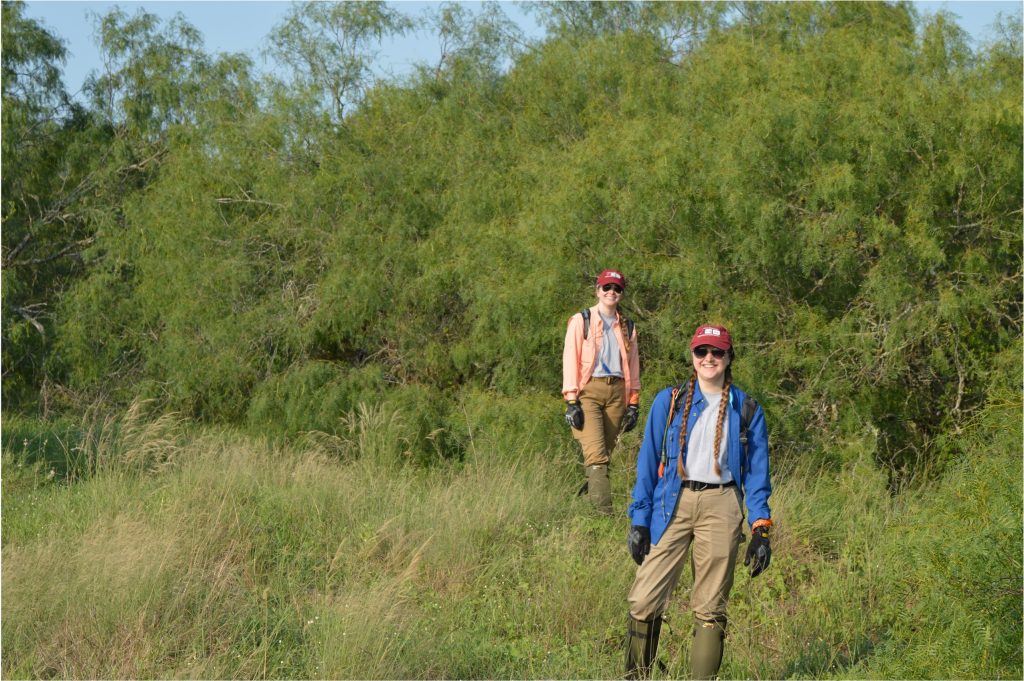
We walked for nearly a mile north before we regrouped and headed back to the car for lunch. Luckily I wasn’t as thirsty as I anticipated. I have my team to thank for this because they suggested that I buy a “camelback” backpack: a bag you wear on your back that contains a pouch than can hold several liters of water. While you are walking, you can simply grab the attached hose for a quick drink. Personally, it makes me feel like a gerbil, but it is truly a life-saver and I recommend it for anyone who works outside in the heat. We kept annoying each other to keep drinking water because, well, we care. Food was much needed, however a comfy seat in the van with a full belly made it difficult to resume our search.
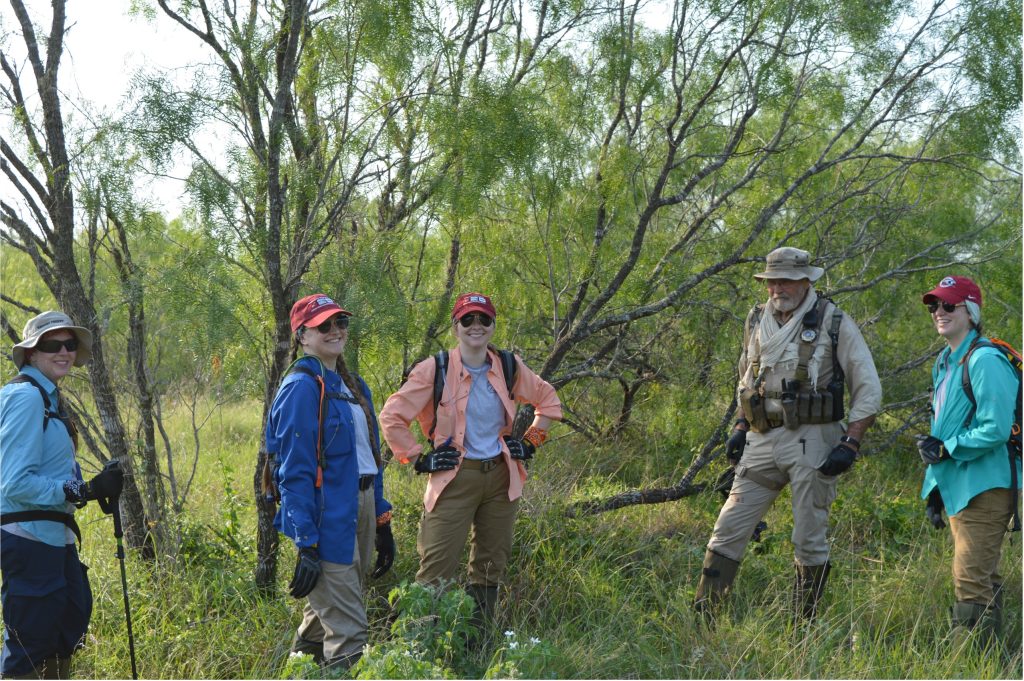
The second time around was much more challenging. We searched the other side of the road, however our path led us each astray from one another deeper and deeper into the brush. We checked under trees, avoiding so many thorn-covered branches. I’m not a botanist, but in my opinion there is no need for every tree in Texas to have that many thorns. It’s a bit ridiculous and unnecessary if you ask me.
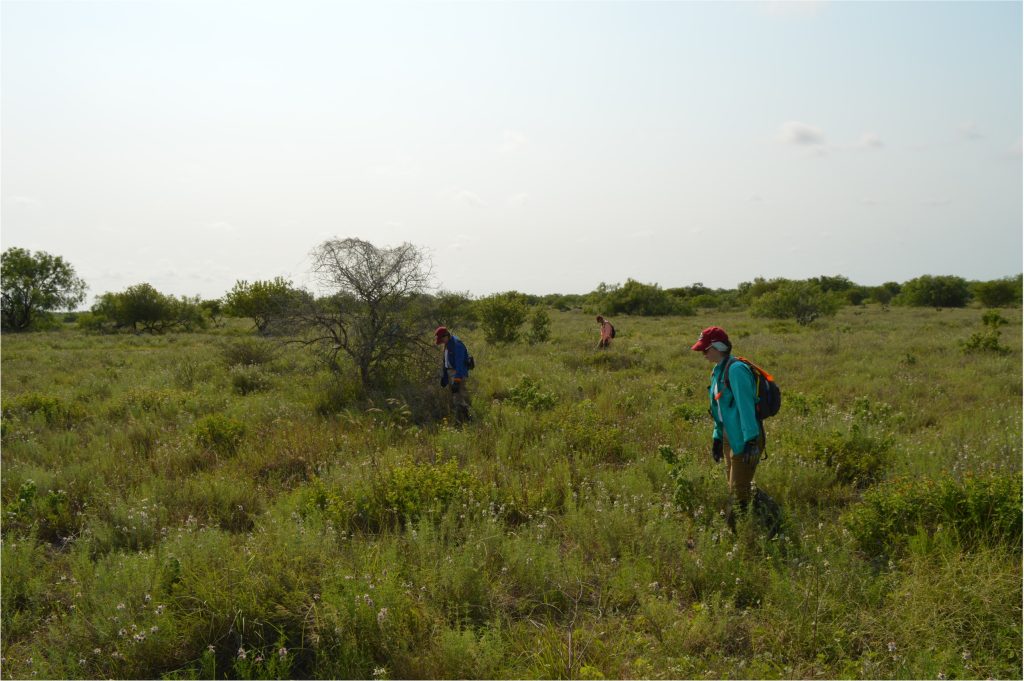
We didn’t get very far before we needed to take another break. The constant ducking under branches and crawling through the shrubs tired us out real quick, not to mention the 98 degree heat. During our rest, I got a chance to sit down and talk to Don about what he does and how his career led him to where he is today. He is a very welcoming and down-to-earth individual. I admire his sense of compassion and dedication to save lives. We are so fortunate to have him with our team this year, and I look forward to working with him within the next week.
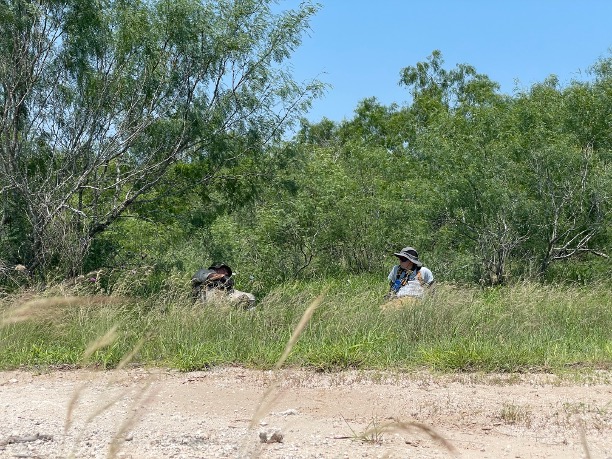
Our last search was conducted a few minutes north at the site of a windmill surrounded by fences to contain livestock. We suspected this would be a good location to find evidence of migrant activity because of the landmark and the water. Dr. Latham was a little nervous about taking the minivan further out on the dirt road where it might lose traction in the sand. We then agreed that if the car made it out successfully she would officially be granted the long awaited name: Sandy. We searched the area and in the surrounding woods but found nothing. We gathered back at the van and Izzy brought back an animal skull for us to see. Thanks to Dr. Nawrocki’s comparative osteology class, I was able to recognize it as some sort of pig skull. Fortunately Sandy got us home in one piece.
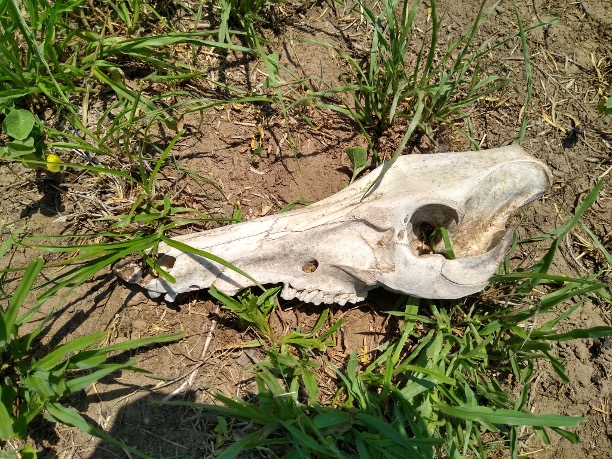
Although our search did not lead us to find anything substantial today, the thought of not discovering anything gives me some hope that the individuals we were searching for are still alive to see another day. Being out there today really gave me some perspective of just how treacherous the journey is. There are so many elements of nature against you out there. I am just glad to know that there are people out there like Don and the rest of our team that can be available to help them when needed. Today was a very humbling experience.
–Austin
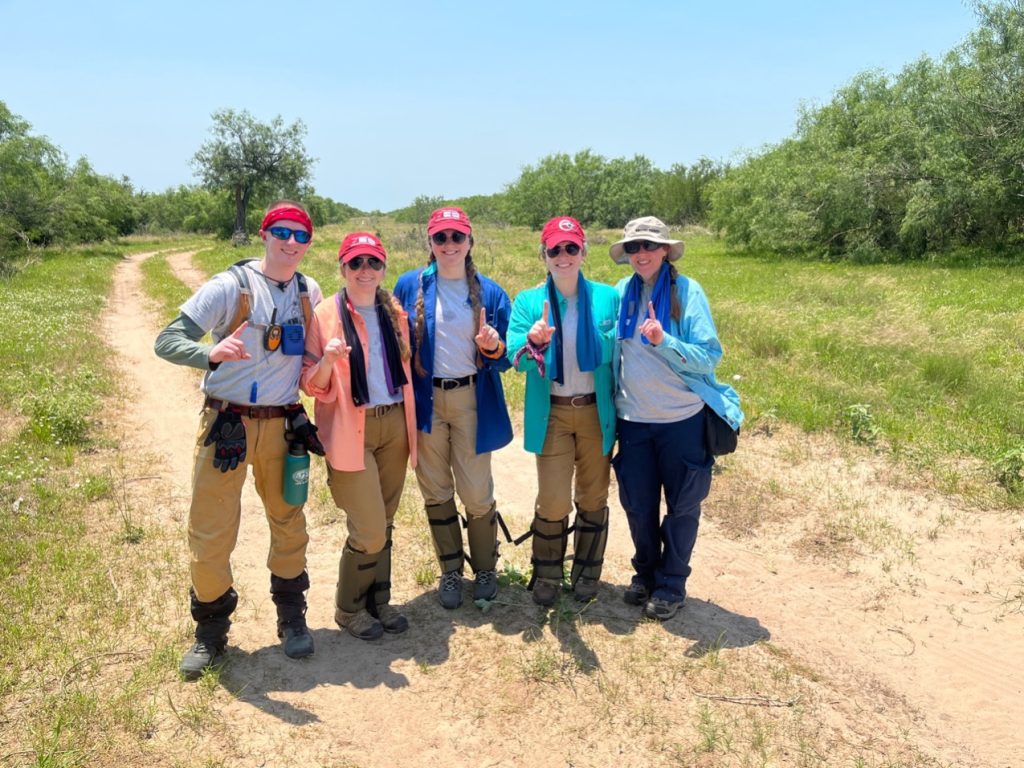
Day 1 Complete!
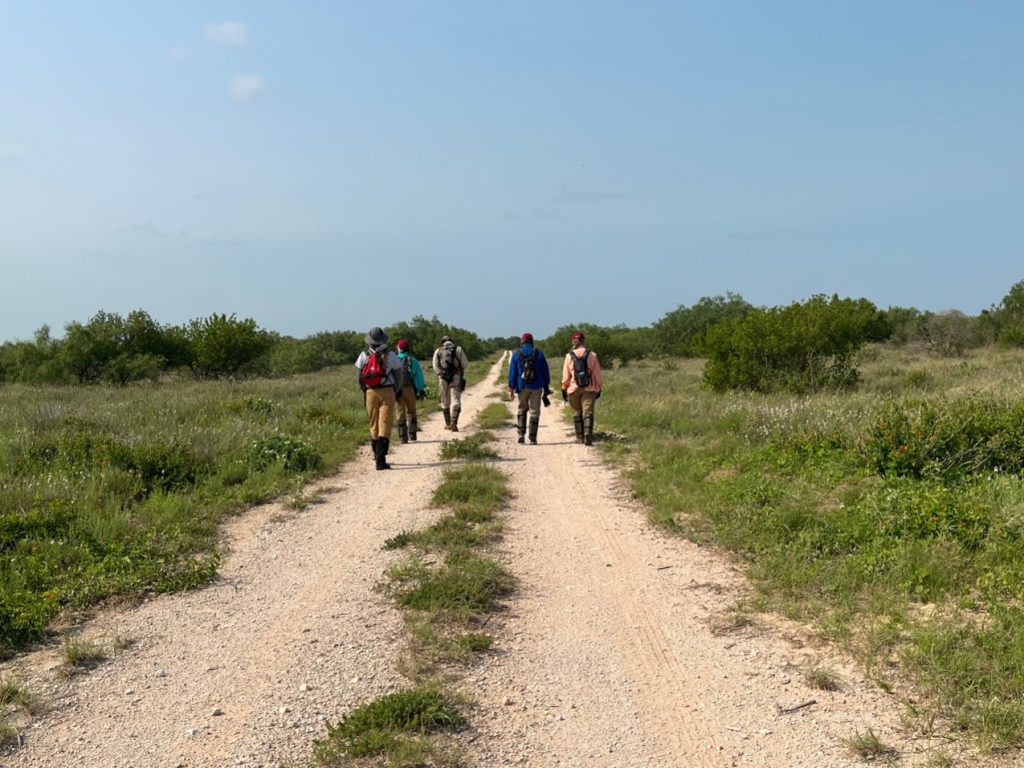
“I enjoy long walks by the dirt roads”
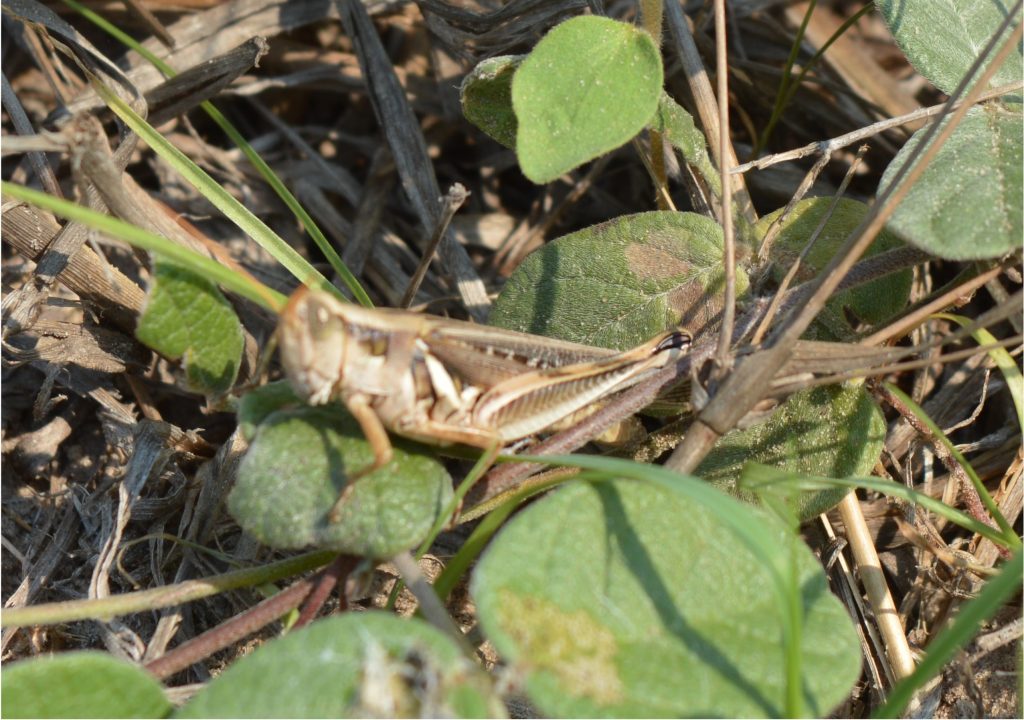
Grasshopper
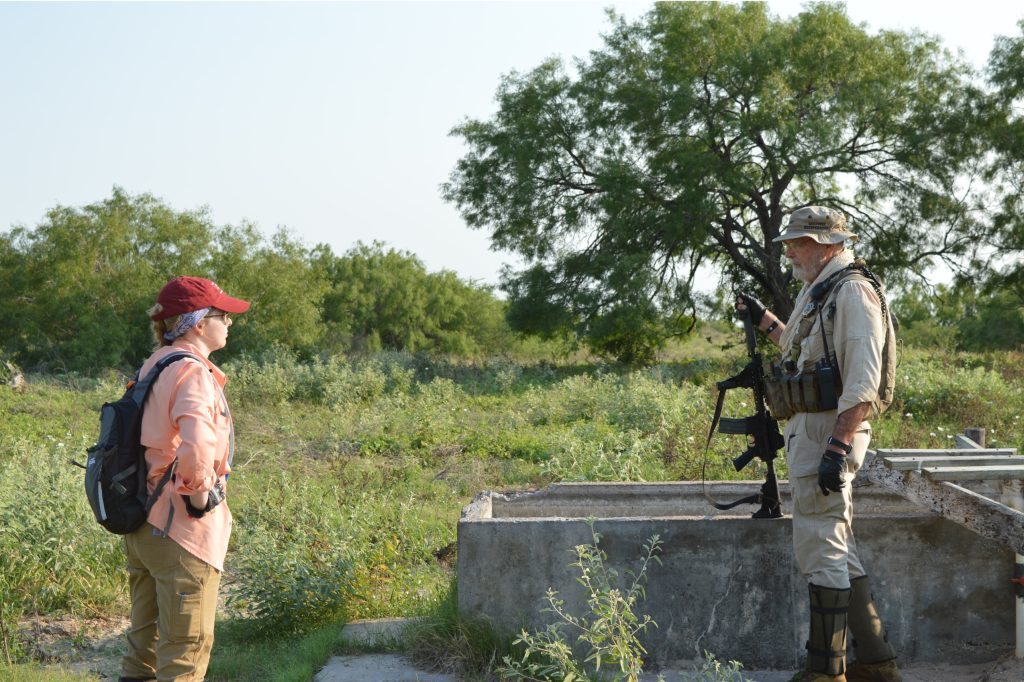
Discussion
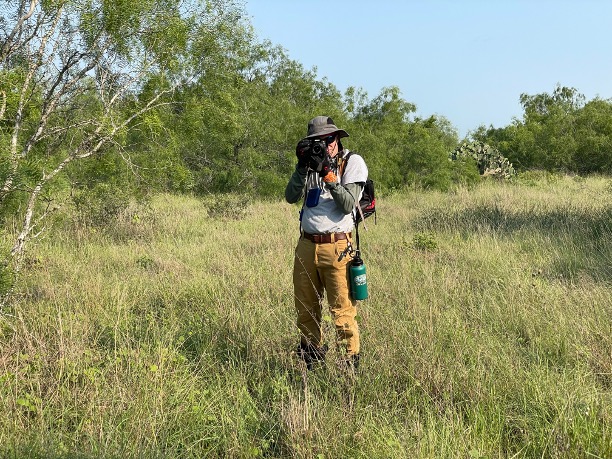
Snap
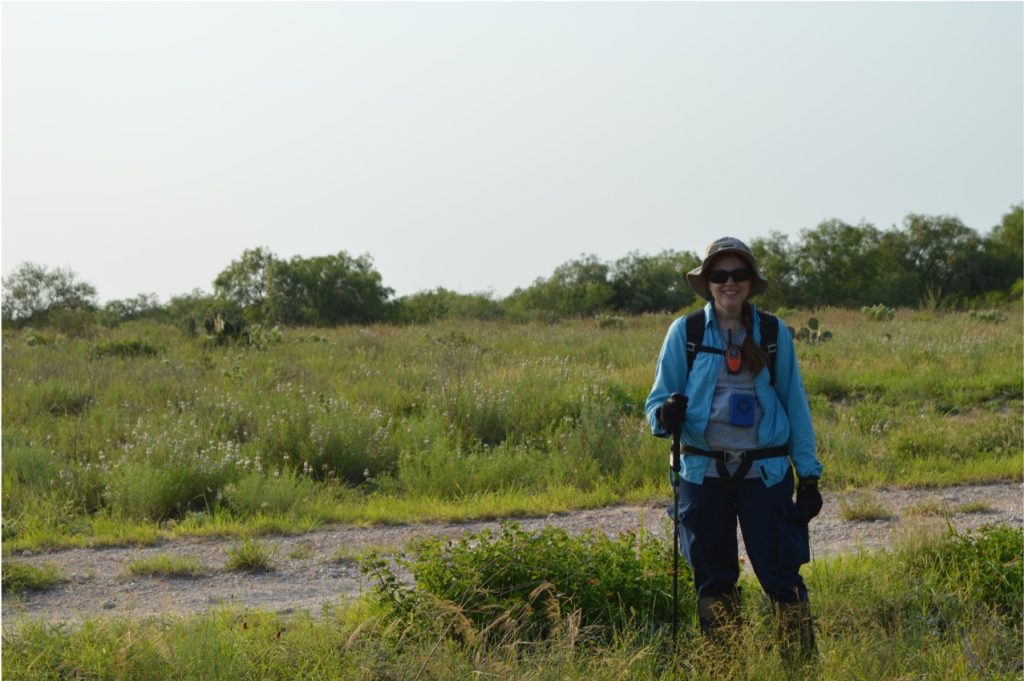
Dr. Latham
